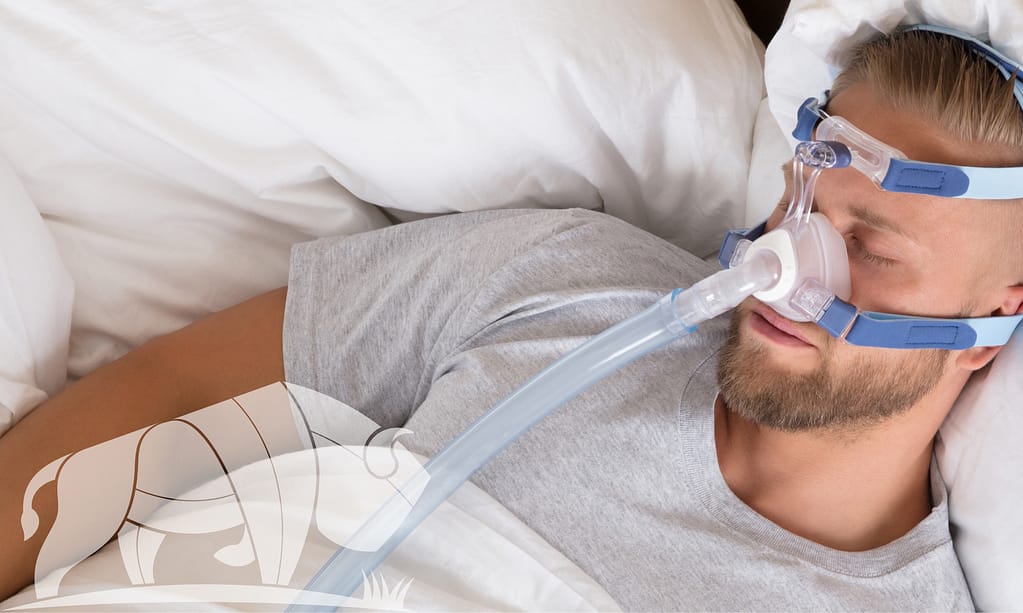Why Your Mood Matters: Exploring the Emotional Toll of Sleep Apnea-Related Depression

It’s been a long year…
Are you having one of “those” days? What about one of “those” weeks? Each night, you go to sleep, hoping you finally feel refreshed in the morning. But each morning, you wake up the same—numb, empty, exhausted, and depressed. Perhaps it’s the stress at work, or perhaps you just went to bed too late.
But you know better. No matter how early you go to bed you still feel the same. The depression doesn’t seem to care if you took a week off of work, you still feel empty. Numb.
Depression can take a toll on a person, and it’s not something you can simply shove in a box and move past. Slowly but surely, it eats away at a person, injuring them from the inside out.
It’s no surprise that sleep issues can cause depression or make an existing case worse. Sleep apnea can do just that.
The Emotional Impact of Sleep Apnea
The challenges that come with sleep apnea can have a huge impact on a person’s emotions. They will likely have constant fatigue due to the regularly disrupted sleep patterns. This alone can put a damper on their quality of life. But over time, it can also make it harder to keep that smile on their face.
Understanding the Link: How Sleep Apnea Contributes to Depression
A person with sleep apnea has an increased chance of depression. Some nights it can be hard, if not impossible, to complete a single sleep cycle. Just like those early days with a newborn, you’re yanked out of sleep over and over again. When your sleep cycles are interrupted by this sudden lack of oxygen, it can create changes in your brain activity, worsening your mood.
Navigating the Mood Landscape: Common Symptoms of Sleep Apnea-Related Depression
Only a doctor can diagnose sleep apnea-related depression. The typical symptoms of sleep apnea-induced depression are a severe loss of interest in the things you once enjoyed, increased irritability, either a decrease or increase in appetite, and changes in sleep patterns.
Restoring the Balance: The Role of Effective Sleep Apnea Treatment
If you have depression caused by sleep apnea, getting the right treatment just might make you feel a million times better. Using CPAP therapy, or even oral appliances, to alleviate the symptoms while you sleep will help you wake feeling refreshed and ready to take on a new day. Completing a night without waking abruptly might sound like a dream, but it could be achieved with just a little help! When you are able to breathe properly throughout the night, your brain and body will be able to relax, rest, and take on a new day.
Beyond the Mask: Good Oral Hygiene and Its Influence on Self-Confidence and Mood
When it comes to depression and anxiety, a good night’s sleep isn’t the only thing that can help. Taking the time to have good oral hygiene can increase both your self-confidence and mood. Think about it, if you forget to brush your teeth, you likely will be highly aware of your smile throughout the day. If you notice any buildup on those teeth or have cracks or missing teeth, you are even less likely to let your smile loose. Taking care of yourself can drastically improve your mood, making you feel ready to conquer the day!
Building Self-Confidence Through Oral Health: Tips and Strategies
While struggling with depression, maintaining your oral health can sometimes fall to the back burner, lost and forgotten. But keeping your smile fresh and clean can do wonders for improving your outlook on life. While fighting the depression monster, try different tricks to help you remember to brush and floss those teeth. Set alarms on your phone, or make a physical to-do list and place it on your bathroom mirror. Set that timer and brush for two minutes, twice a day. Keep reminding yourself that it’s only two minutes; you’ve got this!
Be sure to keep up with your dental check-ups. Because it is so much harder to take care of ourselves while dealing with depression, it is important to have a helping hand. Your dentist will be able to check for any potential problems and help you address them.
Take care of yourself!
Be sure to give yourself the care and attention you need. Seek help if you are having any depression symptoms. Talk to your doctor, talk to us here at Dental Care Associates of Buffalo, your friends, and your family. They are all here to help you every step of the way.
Remember that a boost to your oral health can help you feel just a little better about yourself. If you need a pick-me-up, don’t hesitate to make an appointment!
